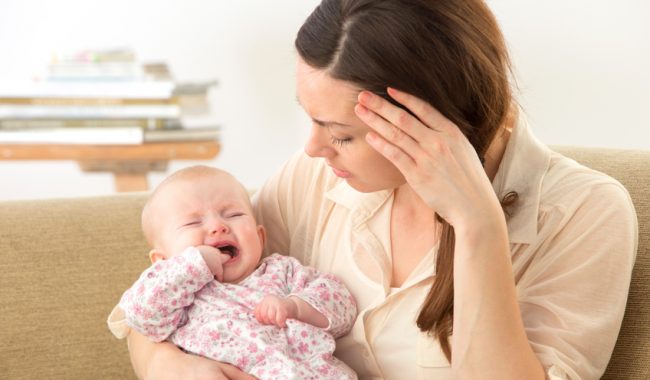Having a baby brings so many emotions—joy, love and sometimes worry or sadness, too. That’s all normal. But if those heavy feelings don’t go away, it could be something more serious. And you’re not alone.

Postpartum Depression
Lots of new parents go through the “baby blues”—feeling moody, tired or overwhelmed in the first week or two after birth. But if the sadness sticks around or gets worse, it could be postpartum depression.
Postpartum depression is common and can happen to any parent, anytime in the first year. Whether you gave birth or not. It’s caused by changes in your body, sleep and stress—not because you’re doing anything wrong. If you are worried about how you feel, talk with your doctor.
Other Health Signs to Watch For
Your body goes through a lot during pregnancy and birth. It’s normal to feel tired—but some symptoms can signal a bigger health issue. Call your doctor if you have:
- A headache that doesn’t go away
- Dizziness or fainting
- Fever of 100.4°F or higher
- Swelling in your hands, face or legs
- Chest pain or trouble breathing
- Heavy bleeding or bad-smelling discharge
- Severe belly pain or nausea
- Fast heartbeat
- Blurry vision or eye pain
- Extreme tiredness
- Panic attacks or scary thoughts
Even if it’s been weeks or months since your baby was born, it’s never too late to speak up. Keep asking for help until you feel better.
If you have Medicaid, you and your baby are covered for at least the first year, so you can get care for any health issues that come up. The AHCCCS website has more information.

